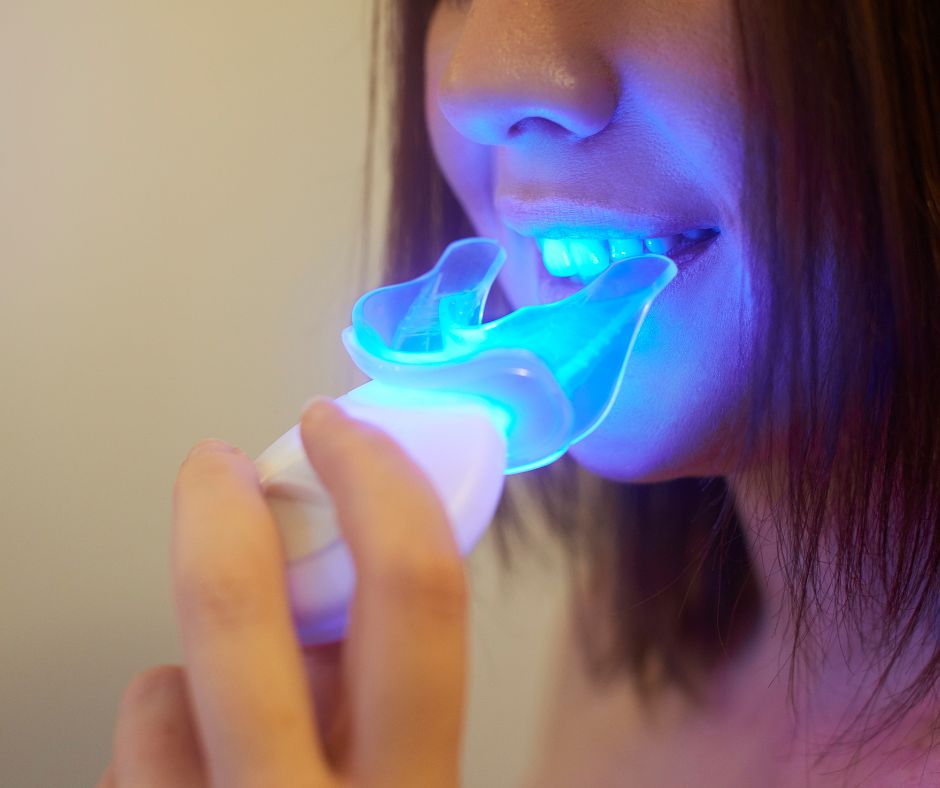Is It Safe To Whiten Your Teeth?

Many products claim to lighten and whiten your teeth
From toothpastes to gels, strips, mouth trays and rinses, there is a dizzying array of products that claim to lighten, brighten and whiten your teeth. And with so many options lining drugstore shelves, it can be daunting to figure out the right method for you.
But are at-home teeth whitening products as effective as they claim? And are they safe? We asked some experts to find out.
How does teeth whitening work?
Teeth whitening products sold over the counter work in one of two ways, the experts we spoke with said. They either scrape away stains using physical force or bleach those stains with the same chemicals used for in-office whitening procedures.
Physical abrasion. Products that have any sort of grittiness — whether they’re whitening toothpastes, regular toothpastes or just plain baking soda — will act as an abrasive and physically file away stains that occur on the surfaces of your teeth, said Dr. Dorota Kopycka-Kedzierawski, a dentist at the University of Rochester Medical Center. Many regular toothpastes contain a little bit of texture for this reason, and brushing itself is an act of physically scraping off stains and debris.
Chemical bleaching. Most whitening strips, gel-filled mouth trays and rinses work by putting your teeth in contact with chemical bleaching agents like carbamide peroxide or hydrogen peroxide. One major difference between these products and in-office versions, said Timothy Bromage, a professor of molecular pathobiology at the N.Y.U. College of Dentistry who specializes in bone and tooth biology, is that the concentrations of chemicals in over-the-counter products are much lower.
Which products work?
Physical abrasion and chemical bleaching products are both effective at whitening teeth, said Dr. Laura Tam, the dean of dentistry at the University of Toronto.
When toothpaste is advertised as “teeth whitening,” it usually means it has more of an abrasive quality than regular toothpaste, she said, but even regular toothpastes that don’t have any “whitening” claims on their packaging will work. Chemical bleaching products can similarly reduce external stains — whether from coffee, tea, red wine or cigarettes. They can also be effective at reducing stains that occur in the inner layer, or dentin, of the teeth.